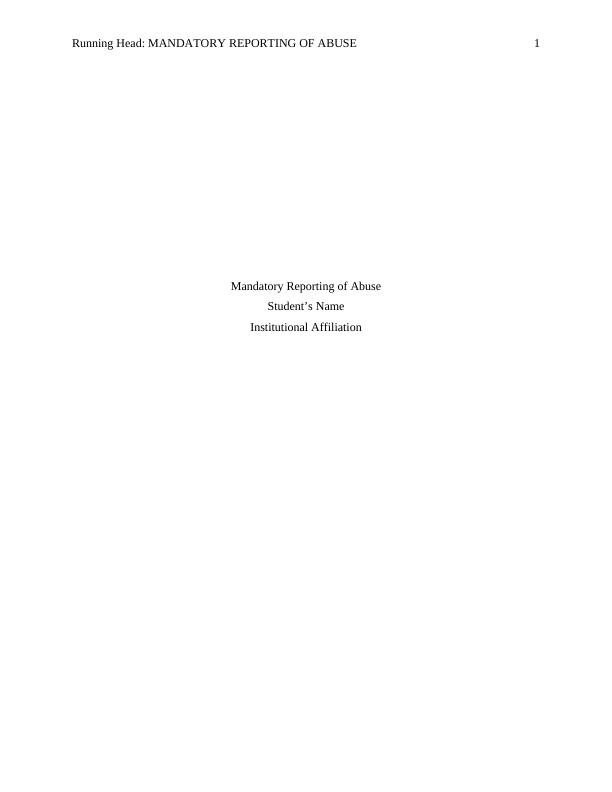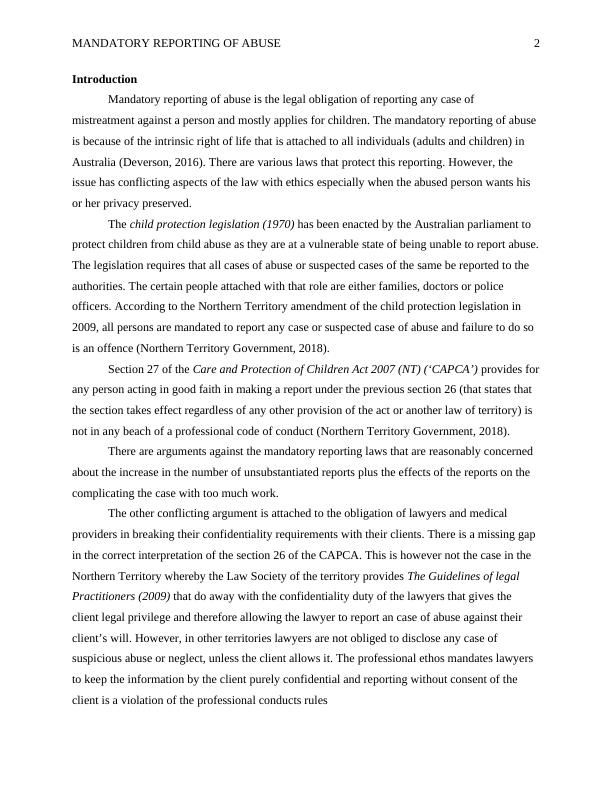Mandatory Reporting of Abuse: Legal Obligation and Ethical Dilemma
4 Pages814 Words398 Views
Added on 2023-06-04
About This Document
This article discusses the legal obligation of mandatory reporting of abuse in Australia, the conflicting aspects of the law with ethics, and the dilemma faced by lawyers and medical practitioners in breaking their confidentiality requirements with their clients.
Mandatory Reporting of Abuse: Legal Obligation and Ethical Dilemma
Added on 2023-06-04
ShareRelated Documents
End of preview
Want to access all the pages? Upload your documents or become a member.
Consent and Mandatory Reporting Assignment 2022
|6
|1180
|21
Child Protection and Domestic Violence Acts in Northern Territory
|12
|3295
|256
Assignment on Mandatory Reporting
|3
|360
|29
Mandatory Reporting For Child Abuse And Neglect
|11
|3340
|42
Legal Reporting Requirements
|8
|1429
|315
Essay on Safeguard Children and Young People
|44
|12142
|72


